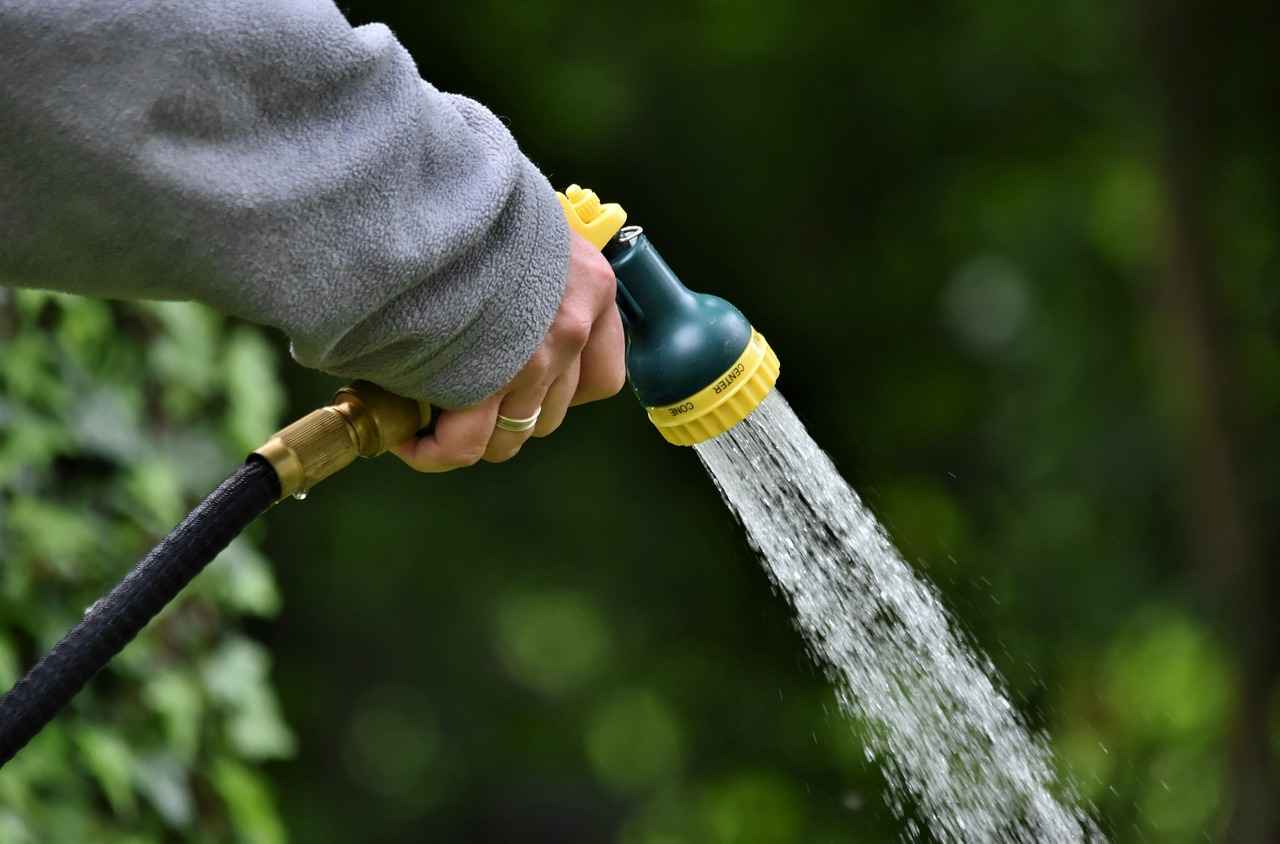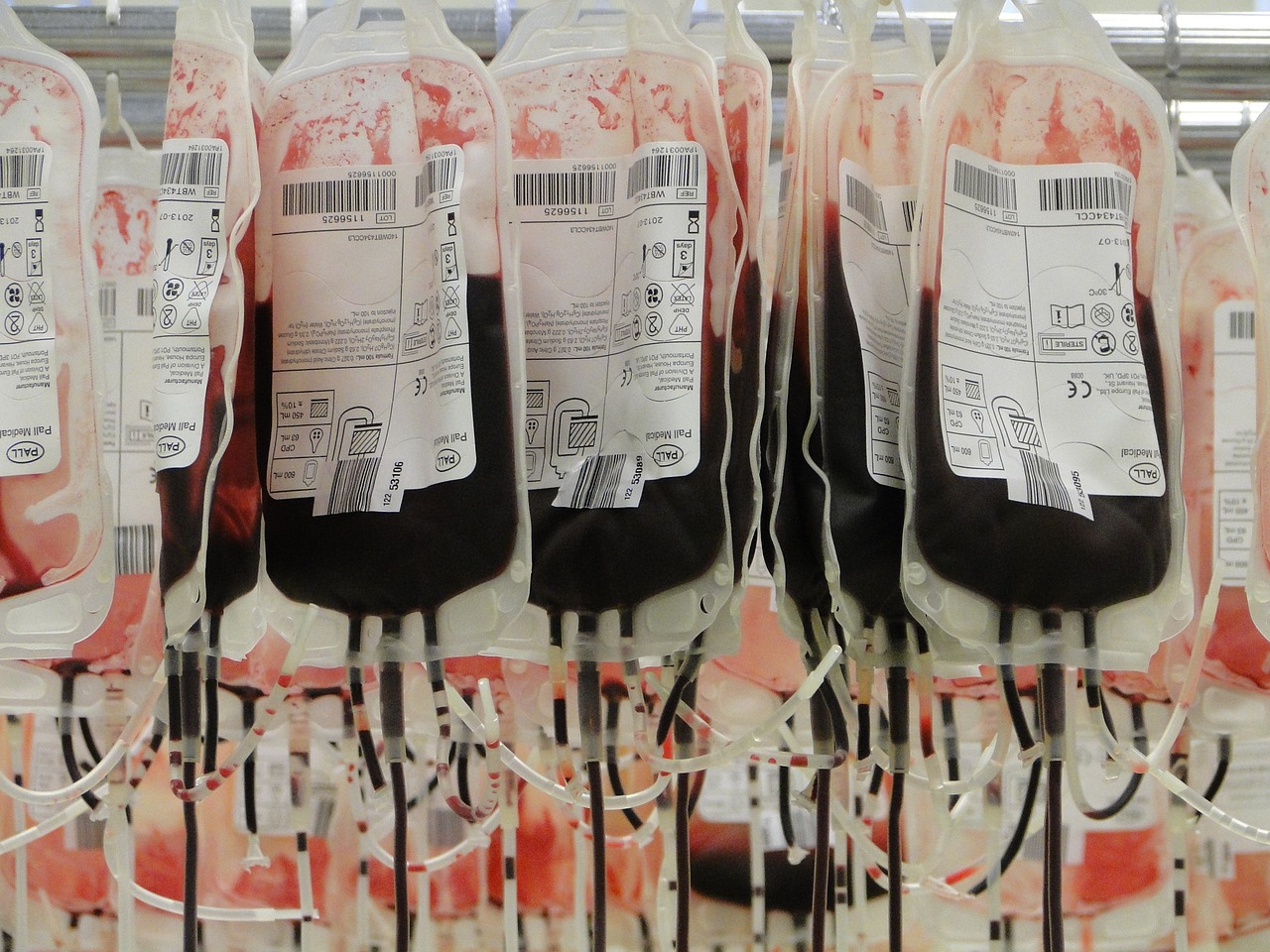This article explores the transformative effects of a 3-day water fast on health, detailing its benefits, potential risks, and practical tips for those considering this fasting method.
What is Water Fasting?
Water fasting is a practice that involves abstaining from all food and consuming only water for a specified duration. Historically, this method has been utilized for spiritual, health, and detoxification purposes. Recently, it has gained popularity in the realm of health and wellness as individuals seek natural ways to improve their overall well-being.
Health Benefits of 3-Day Water Fasting
A 3-day water fast can offer numerous health benefits, supported by scientific research and anecdotal evidence. Below are some of the most notable advantages:
- Weight Loss and Fat Loss: One of the most immediate effects of a 3-day water fast is weight loss. During fasting, the body shifts from using glucose as its primary energy source to burning fat, resulting in significant fat loss.
- Improved Insulin Sensitivity: Fasting can enhance insulin sensitivity, which is essential for maintaining stable blood sugar levels. This improvement can lead to better metabolic health and a reduced risk of type 2 diabetes.
- Cellular Autophagy: Water fasting triggers a process known as autophagy, where the body cleans out damaged cells and regenerates new ones. This process is crucial for longevity and may help prevent various diseases.
Potential Risks of 3-Day Water Fasting
While the benefits of water fasting are compelling, it is essential to consider the potential risks:
- Dehydration and Electrolyte Imbalance: Prolonged fasting can lead to dehydration and imbalances in electrolytes, which are vital for bodily functions. It’s important to monitor hydration levels closely.
- Not Suitable for Everyone: Water fasting is not appropriate for everyone, especially individuals with certain medical conditions. Consulting a healthcare professional before starting a fast is crucial to ensure safety.
How to Prepare for a 3-Day Water Fast
Preparation is key to a successful water fast. Here are some practical tips:
- Gradual Reduction of Food Intake: Gradually reducing food intake leading up to the fast can ease the transition. This approach allows your body to adjust more smoothly to the fasting state.
- Staying Hydrated: Hydration is critical during a fast. Aim to drink plenty of water before and during your fasting period to maintain optimal hydration levels.
Breaking the Fast: Best Practices
How you break a fast can significantly impact your recovery. Here are some best practices:
- Starting with Light Foods: After fasting, it’s essential to start with light, easily digestible foods such as broth, fruits, or steamed vegetables. This helps your digestive system gradually resume normal function.
- Listening to Your Body: Pay attention to your body’s signals during the refeeding phase. Recognizing signs of hunger and fullness can help you avoid overeating and discomfort.
In summary, a 3-day water fast can be a powerful tool for enhancing health, but it requires careful consideration and preparation. By understanding the benefits, risks, and best practices, individuals can make informed decisions about whether this fasting method is right for them.

What is Water Fasting?
Water fasting is a dietary practice that involves the complete abstention from all food and the exclusive consumption of water for a predetermined duration. Traditionally, fasting has been a part of various cultural and religious practices across the globe, serving as a means for spiritual reflection, detoxification, and physical rejuvenation. In recent years, however, water fasting has gained popularity as a contemporary health trend, with many individuals seeking its potential benefits for weight loss, metabolic health, and overall wellness.
The historical context of water fasting can be traced back to ancient civilizations. For instance, the Greeks and Romans often used fasting as a method to promote health and longevity. Philosophers like Socrates and Plato advocated for fasting, believing it could enhance mental clarity and physical vitality. Similarly, many religious traditions, including Islam, Christianity, and Hinduism, incorporate fasting as a spiritual discipline, emphasizing its role in self-control and purification.
With the rise of modern health trends, water fasting has experienced a resurgence, particularly among those interested in intermittent fasting and detox diets. Many proponents claim that water fasting can lead to significant health improvements, including enhanced metabolic function, increased fat oxidation, and even cellular repair processes like autophagy. This has sparked interest in scientific research, which is beginning to explore the physiological effects of fasting on the body.
In addition to its historical significance, the modern approach to water fasting often emphasizes the importance of preparation and post-fasting practices. Individuals are encouraged to gradually reduce their food intake prior to starting a fast to ease the transition. This can involve consuming lighter meals rich in nutrients, which helps to minimize discomfort during the fasting period.
Furthermore, the practice of water fasting is not without its challenges. Many individuals may experience side effects such as headaches, fatigue, or irritability, particularly during the initial stages of fasting. This highlights the necessity of approaching water fasting with caution and awareness of one’s personal health conditions. Consulting with a healthcare professional before embarking on a prolonged fast is highly recommended, especially for those with pre-existing health issues.
In summary, water fasting is a time-honored practice that has evolved into a modern health trend, attracting attention for its potential benefits. As more people seek to understand the implications of fasting on health, it is essential to consider both the historical context and the contemporary practices surrounding this intriguing dietary approach.

Health Benefits of 3-Day Water Fasting
A 3-day water fast can be a transformative experience for many individuals seeking to improve their overall health. This fasting method, which involves consuming only water for a period of three days, has garnered attention for its potential health benefits. Scientific studies and anecdotal evidence alike suggest that such a fast can lead to significant improvements in various aspects of metabolic health, cellular repair, and more. Below, we explore the key advantages of a 3-day water fast, drawing upon research to support these claims.
- Enhanced Metabolic Health: One of the most significant benefits of a 3-day water fast is the improvement in metabolic health. Research indicates that fasting can lead to reduced insulin levels and improved insulin sensitivity. This is crucial for maintaining stable blood sugar levels and preventing insulin resistance, a precursor to type 2 diabetes.
- Weight Loss: A 3-day water fast can result in noticeable weight loss. During this period, the body shifts from using glucose for energy to burning fat stores. This process not only aids in weight reduction but also promotes fat loss, which can contribute to a healthier body composition.
- Cellular Repair and Autophagy: Water fasting triggers a biological process known as autophagy, where the body cleans out damaged cells and regenerates new ones. This process is essential for longevity and may play a role in reducing the risk of age-related diseases.
- Improved Mental Clarity: Many individuals report enhanced mental clarity and focus during and after a water fast. This could be attributed to the reduction in insulin levels and the increase in ketone bodies, which provide an alternative energy source for the brain.
- Reduced Inflammation: Fasting has been linked to a reduction in markers of inflammation in the body. Chronic inflammation is associated with various health conditions, including heart disease and cancer. A 3-day fast may help mitigate these risks by promoting a more balanced inflammatory response.
While the benefits of a 3-day water fast are compelling, it is essential to approach this practice with caution. Consulting with a healthcare professional before embarking on a fasting journey is advisable, especially for individuals with pre-existing health conditions. Additionally, understanding how to prepare for the fast and how to break it safely can greatly enhance the experience and minimize potential risks.
In summary, a 3-day water fast offers a range of health benefits, from improved metabolic health and weight loss to enhanced cellular repair and mental clarity. By understanding these advantages and preparing adequately, individuals can harness the transformative power of fasting for better health.
Weight Loss and Fat Loss
One of the most immediate effects of a 3-day water fast is weight loss. This phenomenon occurs as the body undergoes significant metabolic changes during the fasting period. When food intake ceases, the body is compelled to utilize its stored energy, primarily in the form of fat, to sustain essential functions.
During a water fast, the body enters a state known as ketosis, where it shifts from using glucose as its primary energy source to burning fat for fuel. This metabolic switch is crucial for weight reduction, as it encourages the body to tap into fat reserves, leading to a decrease in overall body weight. Research indicates that fasting can enhance fat oxidation, which is the process of breaking down fatty acids for energy, thus promoting fat loss.
Moreover, fasting can lead to a decrease in insulin levels. Insulin is a hormone that facilitates the storage of fat, and lower insulin levels can result in increased fat mobilization. As insulin levels drop, the body is less inclined to store fat and more likely to utilize it for energy, further contributing to weight loss.
Another important aspect of a 3-day water fast is its effect on caloric intake. By abstaining from food, individuals naturally reduce their caloric consumption, which can result in a caloric deficit—a key factor in weight loss. Studies show that even short-term fasting can lead to a significant reduction in body weight and fat mass.
Additionally, the psychological aspect of fasting can also play a role in weight management. Many individuals report feeling a heightened sense of control over their eating habits after completing a fast. This newfound awareness can lead to healthier food choices and a more mindful approach to eating, promoting long-term weight management.
However, it is essential to approach fasting with caution. While a 3-day water fast can lead to rapid weight loss, it is not a sustainable long-term solution for weight management. Individuals should consider their overall health, lifestyle, and nutritional needs before engaging in prolonged fasting. Consulting with a healthcare professional is advisable to ensure safety and efficacy.
In summary, a 3-day water fast can be an effective method for weight loss and fat loss due to the metabolic changes it induces. By promoting fat burning, reducing insulin levels, and encouraging a caloric deficit, fasting can lead to significant weight reduction. However, it is crucial to approach this practice with care and to consider it as part of a broader strategy for maintaining a healthy weight.
Improved Insulin Sensitivity
Fasting, particularly a 3-day water fast, has gained attention for its potential to enhance insulin sensitivity, a critical factor in maintaining metabolic health. Insulin sensitivity refers to how effectively the body’s cells respond to insulin, the hormone responsible for regulating blood sugar levels. When insulin sensitivity is high, the body can utilize glucose more efficiently, leading to improved energy levels and a reduced risk of metabolic disorders.
During a 3-day fast, several physiological changes occur that can lead to better insulin sensitivity. First and foremost, fasting triggers a reduction in circulating insulin levels. As the body transitions into a fasting state, it begins to utilize stored energy, primarily from fat. This shift not only helps to lower blood sugar levels but also decreases the amount of insulin the pancreas needs to produce.
Research indicates that short-term fasting can lead to significant improvements in blood sugar control. For instance, studies have shown that participants who underwent fasting experienced a decrease in fasting blood glucose levels. This effect is particularly beneficial for individuals at risk of developing type 2 diabetes, as improved insulin sensitivity can help prevent the onset of this condition.
Moreover, fasting has been linked to a decrease in inflammation, which is known to impair insulin sensitivity. By reducing inflammatory markers, the body can improve its insulin response, allowing for better blood sugar regulation. This is crucial because chronic inflammation is often associated with insulin resistance, where the body’s cells become less responsive to insulin.
Another mechanism through which fasting enhances insulin sensitivity is through the process of ketosis. During prolonged fasting, the body enters a state of ketosis, where it starts to burn fat for fuel instead of carbohydrates. This metabolic shift not only aids in weight loss but also improves insulin sensitivity, as fat-derived ketones can have a positive impact on glucose metabolism.
Additionally, a 3-day fast can stimulate the release of growth hormone, which has been shown to enhance fat oxidation and improve insulin sensitivity. Increased levels of growth hormone promote the utilization of fat as an energy source, leading to a decrease in body fat percentage, which is directly linked to better insulin function.
For those considering a 3-day water fast, it is essential to approach it with caution and preparation. Gradually reducing food intake prior to the fast can help ease the transition and minimize potential discomfort. Staying well-hydrated throughout the fasting period is crucial, as it supports overall metabolic processes and helps mitigate feelings of hunger.
In summary, a 3-day water fast can significantly improve insulin sensitivity through various physiological mechanisms, including reduced insulin levels, decreased inflammation, and enhanced fat metabolism. These changes not only promote better blood sugar control but also contribute to overall metabolic health, making fasting a potentially valuable tool for those looking to optimize their well-being.
Cellular Autophagy
Cellular autophagy is a vital process that enables the body to remove damaged cells and regenerate new ones. This mechanism is crucial for maintaining cellular health and overall well-being. Recent studies have highlighted how practices such as water fasting can significantly enhance autophagy, leading to numerous health benefits.
During a 3-day water fast, the body undergoes a series of metabolic changes that trigger autophagy. When food intake is restricted, the body begins to utilize stored energy, primarily from fat. This state of energy deprivation prompts cells to initiate autophagy, wherein they break down and recycle dysfunctional components. This process not only cleanses the cells but also promotes the production of new, healthy cellular components.
The implications of enhanced autophagy are profound. Research indicates that increased autophagy can lead to improved longevity and a reduced risk of various diseases, including neurodegenerative disorders, cancer, and metabolic syndromes. By clearing out damaged cellular components, the body can function more efficiently, which is essential for maintaining optimal health.
Furthermore, autophagy plays a critical role in the body’s response to stress. When cells are under stress, such as during fasting, autophagy helps to mitigate damage and promote cellular repair. This adaptive response is crucial for longevity, as it enhances the resilience of cells against age-related decline.
- Enhanced Immune Function: Autophagy helps regulate immune responses, allowing the body to better fight infections and diseases.
- Reduction of Inflammation: By clearing out damaged cells and proteins, autophagy can help reduce chronic inflammation, a key factor in many diseases.
- Improved Brain Health: Studies suggest that autophagy may protect against neurodegenerative diseases by removing toxic protein aggregates from brain cells.
Incorporating water fasting into one’s health routine can be a powerful tool for inducing autophagy. However, it is essential to approach fasting with caution. Individuals should consult with healthcare professionals before embarking on extended fasting periods, especially those with pre-existing health conditions.
In conclusion, the process of cellular autophagy triggered by water fasting offers significant health benefits. By promoting cellular cleaning and regeneration, autophagy can lead to enhanced longevity and a lower risk of diseases. As research continues to unveil the complexities of this process, it becomes increasingly clear that understanding and harnessing autophagy may play a pivotal role in our journey toward optimal health.

Potential Risks of 3-Day Water Fasting
While the concept of water fasting has gained popularity for its potential health benefits, it is crucial to recognize that it is not without its risks. Understanding these risks allows individuals to make informed decisions about whether to embark on a 3-day water fast. This section outlines the potential side effects and health concerns that should be considered before initiating a fast.
- Dehydration and Electrolyte Imbalance: One of the most significant risks associated with prolonged water fasting is the potential for dehydration. When the body is deprived of food, it may also struggle to maintain adequate hydration levels. Additionally, fasting can lead to an imbalance of electrolytes, which are essential for various bodily functions, including muscle contractions and nerve signaling. Symptoms of electrolyte imbalance may include dizziness, fatigue, and irregular heartbeats.
- Not Suitable for Everyone: Water fasting is not appropriate for everyone. Individuals with certain health conditions, such as diabetes, eating disorders, or heart problems, should avoid fasting without medical supervision. Pregnant or breastfeeding women, as well as children, should also refrain from fasting. Consulting with a healthcare professional before starting a fast is highly recommended to ensure safety and suitability.
- Potential for Nutritional Deficiencies: Extended periods without food can lead to nutritional deficiencies. While a 3-day fast may not result in severe deficiencies, it can still impact the body’s nutrient levels. Essential vitamins and minerals that are typically obtained through food may be lacking, which can affect overall health and well-being.
- Physical and Mental Fatigue: During a water fast, individuals may experience heightened feelings of fatigue and lethargy. The lack of caloric intake can lead to decreased energy levels, making it challenging to perform daily activities. Additionally, some people may experience mood swings or irritability due to changes in blood sugar levels.
- Risk of Overeating After the Fast: After completing a water fast, there is a risk of overindulging when reintroducing food. This can lead to gastrointestinal distress, including bloating and discomfort. It is essential to approach the refeeding phase with caution, starting with light, easily digestible foods.
In summary, while 3-day water fasting can offer various health benefits, it is essential to weigh these against the potential risks. Individuals should carefully consider their health status and consult with healthcare professionals before embarking on such a fasting regimen. By understanding the implications of water fasting, one can make a more informed decision that aligns with their health goals.
Dehydration and Electrolyte Imbalance
During a 3-day water fast, one of the critical concerns is the risk of dehydration and electrolyte imbalances. As the body enters a fasting state, it begins to utilize stored energy, which can lead to increased fluid loss. Understanding the significance of maintaining adequate hydration and electrolyte levels is essential for anyone considering this fasting method.
When you abstain from food, your body still requires water to function properly. It is important to recognize that even though you are consuming only water, you may not be replenishing essential electrolytes such as sodium, potassium, and magnesium. These minerals play vital roles in various physiological processes, including:
- Nerve function: Electrolytes are crucial for transmitting nerve signals.
- Muscle contractions: Proper electrolyte levels help prevent muscle cramps and spasms.
- Fluid balance: Electrolytes help maintain the balance of fluids in and out of cells.
As fasting progresses, the risk of dehydration increases, especially if individuals do not consciously monitor their water intake. Symptoms of dehydration can include:
- Dizziness
- Dry mouth
- Fatigue
- Headaches
To mitigate these risks, it is crucial to:
- Stay Hydrated: Aim to drink an adequate amount of water throughout the day. A general guideline is to consume at least 2-3 liters of water daily, adjusting based on your individual needs.
- Monitor Electrolyte Levels: Consider adding electrolyte supplements or consuming electrolyte-rich beverages that are low in calories to help maintain balance.
- Listen to Your Body: Pay attention to any signs of dehydration or electrolyte imbalance and adjust your intake accordingly.
It is also essential to consult with a healthcare professional before starting a water fast, especially if you have pre-existing health conditions or are taking medications that may affect hydration or electrolyte levels. They can provide personalized recommendations to ensure a safe fasting experience.
In summary, while a 3-day water fast can offer numerous health benefits, it is imperative to prioritize hydration and electrolyte balance to avoid potential complications. By staying vigilant and informed, individuals can navigate the challenges of fasting while reaping its transformative effects on health.
Not Suitable for Everyone
While the 3-day water fast can offer significant health benefits, it is crucial to recognize that this fasting method may not be suitable for everyone. Individuals with certain health conditions or specific circumstances should approach water fasting with caution. This section highlights the importance of consulting with a healthcare professional before embarking on a fasting journey.
- Medical Conditions: People with chronic illnesses such as diabetes, heart disease, or kidney disorders should avoid water fasting unless supervised by a healthcare provider. These conditions can complicate the fasting process and lead to serious health risks.
- Pregnancy and Breastfeeding: Pregnant or breastfeeding women have increased nutritional needs. Fasting during this period can deprive both the mother and child of essential nutrients, which can have adverse effects on health.
- Eating Disorders: Individuals with a history of eating disorders should refrain from fasting. The restrictive nature of a water fast may trigger unhealthy behaviors or thoughts related to food and body image.
- Medications: Certain medications require food intake for proper absorption. Those on such medications must consult their healthcare provider to discuss potential interactions and risks associated with fasting.
Before starting a water fast, it is imperative to undergo a thorough health evaluation. A healthcare professional can provide personalized advice based on individual health status, ensuring that any fasting undertaken is safe and beneficial.
Moreover, the potential risks associated with water fasting extend beyond just pre-existing health conditions. For instance, individuals may experience side effects such as dizziness, fatigue, or headaches, especially if they are not adequately prepared or hydrated. These symptoms can be more pronounced in those with underlying health issues.
As a general guideline, anyone considering a water fast should take the following steps:
- Consult a Doctor: Schedule an appointment with a healthcare professional to discuss your health history and any concerns you may have regarding fasting.
- Assess Your Health: Undergo necessary health screenings to determine if fasting is appropriate for you.
- Consider Alternatives: Explore other dietary approaches or intermittent fasting methods that may suit your lifestyle and health needs better.
In summary, while the potential health benefits of a 3-day water fast are enticing, it is essential to prioritize safety and well-being. Consulting with a healthcare professional is a critical step in ensuring that fasting is a suitable choice for your unique health circumstances. Remember, your health should always come first.

How to Prepare for a 3-Day Water Fast
Preparation is key to a successful water fast. Engaging in a 3-day water fast can be a transformative experience for your body and mind, but proper preparation is essential for maximizing the benefits and minimizing potential discomfort. Here are some practical tips to help you prepare both physically and mentally for this fasting period.
Physical Preparation
- Gradual Food Reduction: Before embarking on a water fast, it is advisable to gradually reduce your food intake. This process, often referred to as “tapering,” helps your body adjust to the upcoming fasting period. Start by eliminating processed foods, sugars, and heavy meals a few days prior to the fast.
- Hydration: Staying hydrated is crucial, especially in the days leading up to your fast. Aim to drink plenty of water to ensure your body is well-hydrated. Proper hydration can help minimize feelings of hunger and fatigue during the fasting period.
- Nutrition Focus: In the days leading up to your fast, focus on consuming nutrient-dense foods. Incorporate fruits, vegetables, whole grains, and lean proteins into your diet. This will not only provide your body with essential vitamins and minerals but also prepare your digestive system for the fasting phase.
Mental Preparation
- Set Clear Intentions: Before starting your fast, take time to reflect on your motivations. Whether it’s for health reasons, spiritual growth, or detoxification, having clear intentions can help you stay focused and committed during the fasting period.
- Mindfulness Practices: Incorporating mindfulness techniques such as meditation or journaling can be beneficial. These practices can help you manage cravings, reduce stress, and maintain a positive mindset throughout the fast.
- Support System: Consider sharing your fasting plans with friends or family. Having a support system can provide encouragement and accountability, making the experience more manageable and enjoyable.
Listen to Your Body: During your preparation phase, it’s essential to listen to your body. Pay attention to how you feel as you reduce food intake and increase hydration. This awareness will help you understand your body’s signals during the fast.
Consult a Healthcare Professional: If you have any underlying health conditions or concerns, it’s crucial to consult with a healthcare professional before starting a water fast. They can provide personalized advice and ensure that fasting is safe for you.
In summary, preparing for a 3-day water fast involves both physical and mental readiness. By gradually reducing food intake, staying hydrated, setting clear intentions, and listening to your body, you can enhance your fasting experience and increase the likelihood of achieving your health goals.
Gradual Reduction of Food Intake
Preparing for a 3-day water fast requires careful consideration and planning, particularly when it comes to your food intake. One effective strategy is the prior to the fasting period. This approach not only eases the transition into fasting but also helps to minimize potential discomfort associated with sudden dietary changes.
Here are some effective strategies for tapering off food consumption:
- Start Early: Begin reducing your food intake at least 2-3 days before your fast. This gradual approach allows your body to adjust without shock.
- Focus on Whole Foods: In the days leading up to your fast, prioritize whole, nutrient-dense foods such as fruits, vegetables, and lean proteins. These foods are easier to digest and provide essential nutrients.
- Decrease Portion Sizes: Gradually reduce the size of your meals. For instance, if you typically eat three large meals a day, consider transitioning to smaller, more frequent meals.
- Avoid Processed Foods: Steer clear of processed and high-sugar foods as you prepare for your fast. These can lead to cravings and make the transition more challenging.
- Incorporate More Liquids: Start replacing some of your meals with broths or smoothies. This not only helps you stay hydrated but also prepares your digestive system for the upcoming fast.
- Mindful Eating: Practice mindful eating by paying attention to your hunger cues. This can help you become more in tune with your body and reduce the likelihood of overeating.
Additionally, it’s essential to maintain a positive mindset during this preparatory phase. Mental preparation can be just as crucial as physical readiness. Engage in relaxation techniques such as meditation or gentle yoga, which can help reduce anxiety about the fasting experience.
As you approach the final day before your fast, aim to consume lighter meals that are easy on the stomach. Foods such as steamed vegetables, light soups, or salads can be excellent choices. This will help your body transition smoothly into the fasting state.
Lastly, remember to listen to your body throughout this process. If you feel overly hungry or fatigued, it’s important to adjust your food intake accordingly. Everyone’s body reacts differently, and finding what works best for you is key to a successful fasting experience.
Staying Hydrated
During a fasting period, hydration is not just important; it is absolutely critical for maintaining overall health and well-being. When you engage in a water fast, your body relies solely on water for its hydration needs, making it essential to drink adequate amounts throughout the day. This section will explore the significance of hydration during a fast and provide practical tips to ensure you stay adequately hydrated.
First and foremost, water is vital for numerous bodily functions. It aids in digestion, nutrient absorption, and temperature regulation, among other things. During fasting, your body may experience increased metabolic activity as it shifts from using glucose to fat for energy. This metabolic shift can lead to a higher demand for water, making it crucial to replenish fluids regularly.
Additionally, dehydration can lead to various side effects, including headaches, fatigue, dizziness, and even muscle cramps. These symptoms can be particularly pronounced during a fast, where your body is already undergoing significant changes. To avoid these issues, it is advisable to follow some simple yet effective strategies:
- Set a Water Intake Goal: Aim to drink at least 2 to 3 liters of water daily. Adjust this amount based on your activity level and environmental conditions.
- Drink Water Regularly: Instead of waiting until you feel thirsty, establish a routine of drinking water at regular intervals throughout the day.
- Monitor Your Urine Color: A simple way to gauge your hydration level is by checking the color of your urine. It should be light yellow; darker urine may indicate dehydration.
- Incorporate Electrolytes: While water is essential, consider including electrolyte supplements or adding a pinch of salt to your water to maintain electrolyte balance. This is particularly important during extended fasting periods.
- Listen to Your Body: Pay attention to signs of thirst and other symptoms of dehydration. If you feel lightheaded or fatigued, increase your water intake.
Moreover, the temperature of the water can also impact hydration. Some individuals find that drinking cold water is more refreshing and encourages them to drink more. Others may prefer warm water, especially during colder months. Experiment with different temperatures to find what works best for you.
As you navigate through your fasting journey, remember that hydration is not just about quantity but also quality. Filtered or mineral water can provide additional benefits, as they may contain essential minerals that your body needs. Avoid sugary drinks or caffeine, as they can lead to dehydration and may counteract the benefits of fasting.
In conclusion, maintaining proper hydration during a water fast is essential for your health and well-being. By implementing the tips mentioned above, you can ensure that you stay hydrated and support your body through the fasting process. Always listen to your body and adjust your water intake based on your specific needs, ensuring a safe and effective fasting experience.

Breaking the Fast: Best Practices
Breaking a fast is a crucial phase that can significantly influence your overall recovery and health outcomes. After a 3-day water fast, your body experiences various physiological changes, making it essential to reintroduce food in a thoughtful and strategic manner. This section outlines recommended practices for safely reintroducing food after a 3-day water fast, ensuring you maximize the benefits of your fasting experience.
- Start with Light Foods: After an extended fast, your digestive system needs time to adjust. Begin with light, easily digestible foods such as broth, diluted juices, or smoothies. These options provide essential nutrients without overwhelming your stomach.
- Incorporate Soft Fruits: Foods like bananas, watermelon, and applesauce are excellent choices to break your fast. They are gentle on the stomach and provide hydration and natural sugars for energy.
- Gradual Reintroduction of Solid Foods: After consuming light foods for a day or two, gradually introduce more solid foods. Start with steamed vegetables and soft grains like rice or quinoa. This gradual approach helps your digestive system to adapt.
- Avoid Heavy Meals: It’s crucial to avoid rich, heavy meals immediately after fasting. Foods high in fats and sugars can lead to digestive discomfort and may negate the benefits of your fast.
- Stay Hydrated: Continue to drink plenty of water during the refeeding phase. Staying hydrated aids digestion and helps your body transition back to regular eating.
- Listen to Your Body: Pay close attention to your body’s signals. Recognize signs of hunger and fullness, and avoid overeating. Eating slowly and mindfully can enhance your refeeding experience.
Incorporating these practices not only facilitates a smooth transition back to regular eating but also enhances the benefits gained during your fasting period. Remember, the goal is to nourish your body without overwhelming it, allowing for optimal recovery and health improvement.
Following these guidelines can help ensure that your post-fast experience is as beneficial as the fast itself. By taking a cautious and informed approach, you can maintain the positive impacts of your 3-day water fast and continue on your journey toward better health.
Starting with Light Foods
After completing a 3-day water fast, the body has undergone significant changes, and it is crucial to approach the refeeding process with care. Starting with light and easily digestible foods is essential to help the digestive system readjust and to avoid overwhelming the body. This section will provide a comprehensive overview of suitable foods to consume when breaking the fast, ensuring a smooth transition back to regular eating.
When breaking a fast, consider the following types of foods:
- Bone Broth: Rich in nutrients and easy on the stomach, bone broth is an excellent choice to start. It provides hydration and essential minerals that can aid in recovery.
- Fresh Juices: Diluted vegetable or fruit juices can be a great way to reintroduce vitamins and minerals. Opt for juices that are low in sugar and high in nutrients, such as cucumber or celery juice.
- Steamed Vegetables: Soft, steamed vegetables like zucchini, spinach, or carrots can be gentle on the digestive system. They are high in fiber and will help stimulate digestion without causing discomfort.
- Rice or Quinoa: Simple carbohydrates like white rice or quinoa can provide energy without being too heavy. They are easily digestible and can help to stabilize blood sugar levels.
- Fermented Foods: Foods such as yogurt, kefir, or sauerkraut can introduce beneficial probiotics to the gut, aiding digestion and promoting a healthy microbiome.
It is also important to pay attention to portion sizes when breaking your fast. Start with small amounts to gauge how your body reacts. Gradually increase the quantity as you feel more comfortable. This approach minimizes the risk of digestive distress and allows your body to acclimate to solid foods again.
Additionally, it is advisable to avoid certain foods during the initial refeeding phase:
- Heavy Proteins: Foods like red meat or large portions of chicken can be hard to digest immediately after fasting.
- Sugary or Processed Foods: These can lead to spikes in blood sugar and may cause discomfort.
- High-Fat Foods: Foods like fried items or rich sauces can overwhelm the digestive system.
Listening to your body is crucial during this time. Everyone’s digestive system reacts differently after fasting, so it’s important to be mindful of how you feel. If you experience any discomfort or unusual symptoms, consider reverting to lighter options and consult a healthcare professional if necessary.
In summary, breaking a fast should be done thoughtfully. By starting with light, nourishing foods and paying attention to your body’s signals, you can ensure a safe and effective transition back to your regular diet. This mindful approach not only aids recovery but also enhances the overall benefits gained from the fasting experience.
Listening to Your Body
Listening to your body during the refeeding phase is essential for a successful recovery after a 3-day water fast. This period is crucial as your body transitions from fasting to eating, and it is important to recognize the signs of hunger and fullness that your body communicates. Understanding these signals can prevent overeating and ensure a smooth reintegration of food into your diet.
After completing a fast, your body may react differently to food than it did before. It is common to experience heightened sensitivity to flavors and textures. Therefore, it is vital to approach meals with mindfulness. Here are some key points to consider:
- Start Slow: Begin with small portions of food. Your stomach may have shrunk during the fast, and large meals can lead to discomfort or digestive issues.
- Pay Attention to Your Body: Focus on how your body feels after consuming food. Are you feeling satisfied, or is there a sense of fullness? Listen to these cues to avoid overeating.
- Stay Hydrated: Continue to drink plenty of water during the refeeding phase. Hydration helps your digestive system adjust and can aid in recognizing hunger signals.
- Choose Nutrient-Dense Foods: Opt for light, easily digestible foods such as fruits, vegetables, and broths. These foods are less likely to overwhelm your system and will provide essential nutrients.
Recognizing hunger and fullness can be challenging after a prolonged fast. Here are some tips to help you tune into your body:
1. Hunger Signs: Look for physical signs like a rumbling stomach, fatigue, or irritability. These are often indicators that your body needs nourishment.2. Fullness Signs: Feelings of satisfaction, a gentle stretching sensation in your stomach, or a decrease in the desire to eat are signs that you may be full.
It is important to note that emotional triggers can also influence your eating habits. Stress, boredom, or social situations may lead you to eat even when you are not physically hungry. Practicing mindfulness can help you differentiate between emotional and physical hunger.
In summary, the refeeding phase after a 3-day water fast is a critical time for your body to adjust. By listening to your body’s signals, starting with small portions, and choosing nutrient-dense foods, you can ensure a healthy transition back to regular eating patterns. This mindful approach not only helps in recognizing hunger and fullness but also promotes a sustainable relationship with food moving forward.
Frequently Asked Questions
- What should I expect during a 3-day water fast?
During a 3-day water fast, your body will undergo various changes. Initially, you might feel hungry or experience cravings, but as your body adjusts, you may notice increased energy levels and mental clarity. It’s like giving your body a reset button!
- Can anyone do a 3-day water fast?
Not everyone should attempt a 3-day water fast. If you have certain health conditions, such as diabetes or eating disorders, or if you’re pregnant, it’s crucial to consult a healthcare professional before starting. Think of it like running a marathon; proper training and health checks are essential!
- How do I stay hydrated during the fast?
Staying hydrated is vital! Aim to drink plenty of water throughout the day. You can also include herbal teas or electrolyte drinks (without calories) to help maintain hydration levels. Just remember, water is your best friend during this journey!
- What are the best foods to break a fast?
When breaking your fast, start with light, easily digestible foods like fruits, broths, or smoothies. Gradually reintroduce solid foods to avoid overwhelming your digestive system. It’s like easing back into a pool after a cold plunge!
- Will I lose weight during a 3-day water fast?
Yes, many people experience weight loss during a 3-day water fast due to reduced calorie intake and increased fat burning. However, it’s important to remember that some of this weight may be water weight and not fat loss. Think of it as a temporary change rather than a long-term solution!












